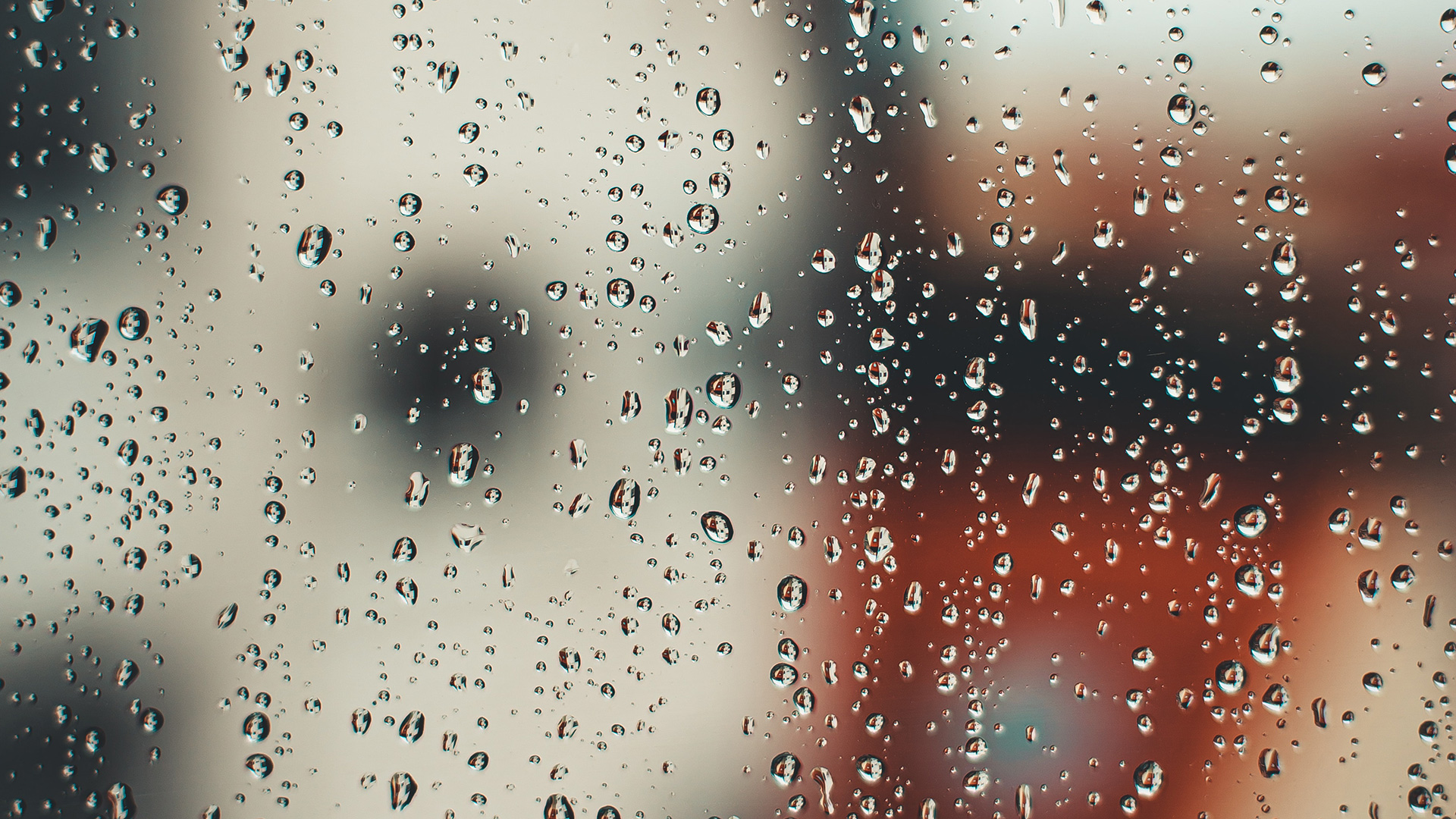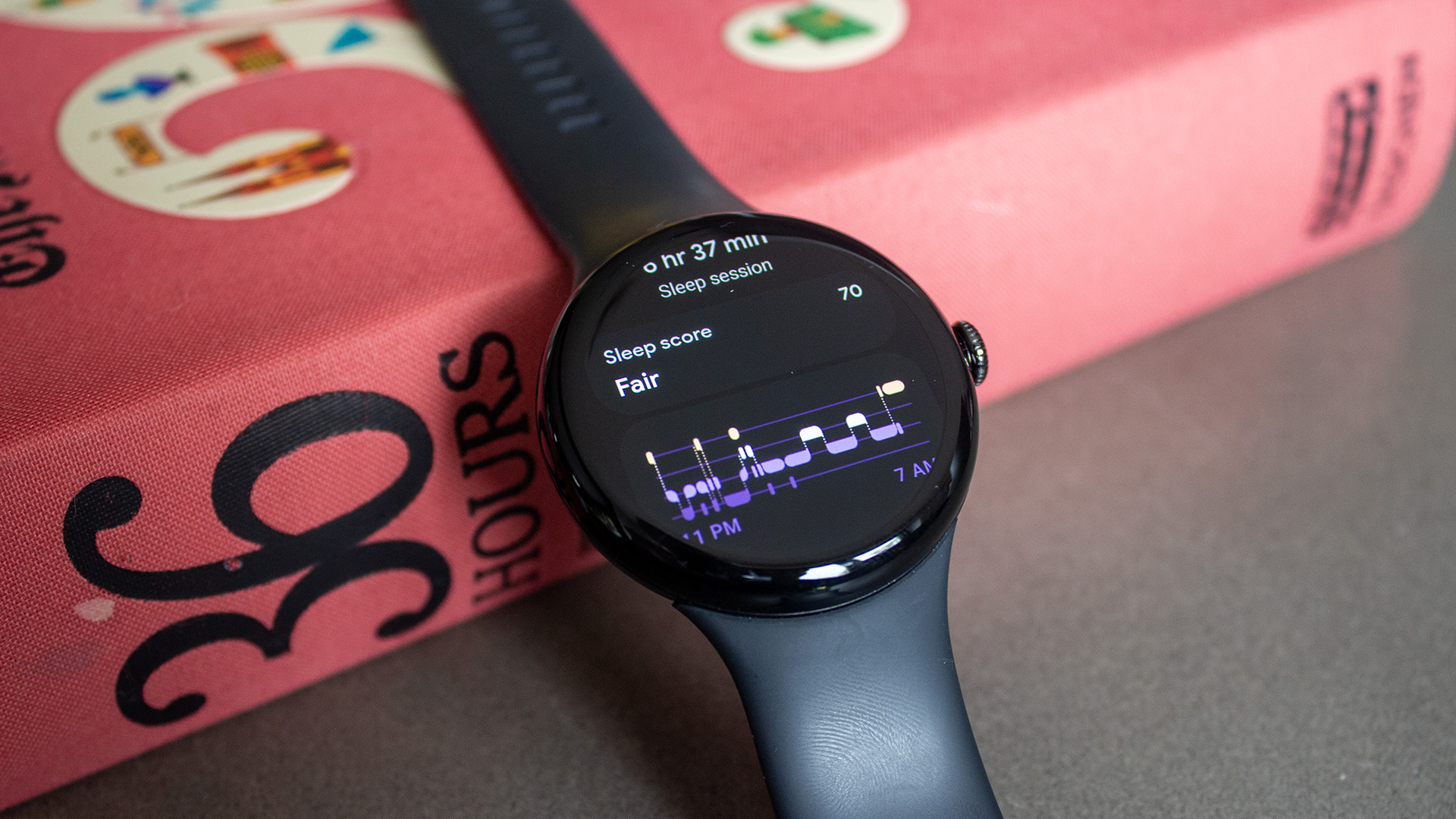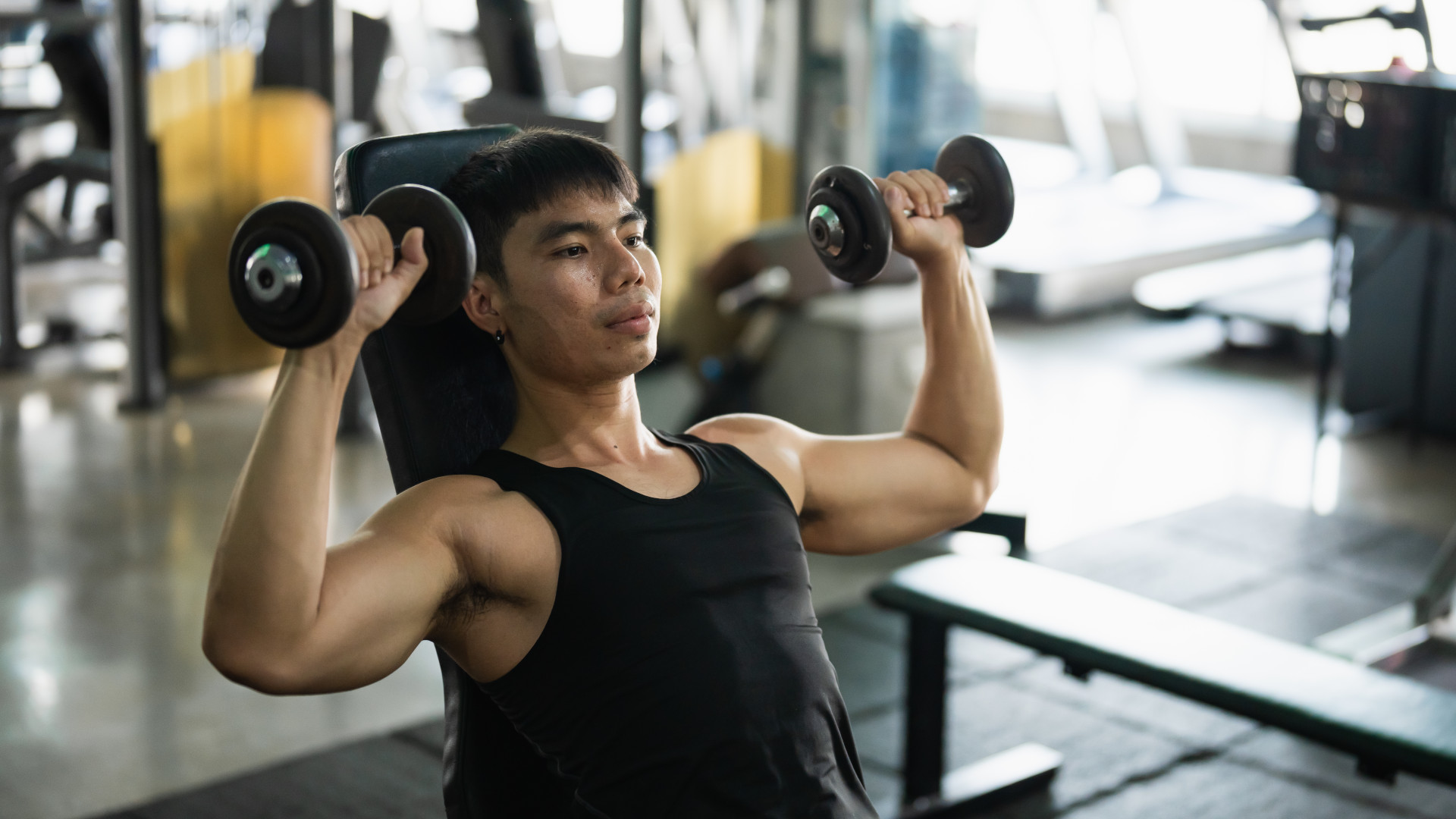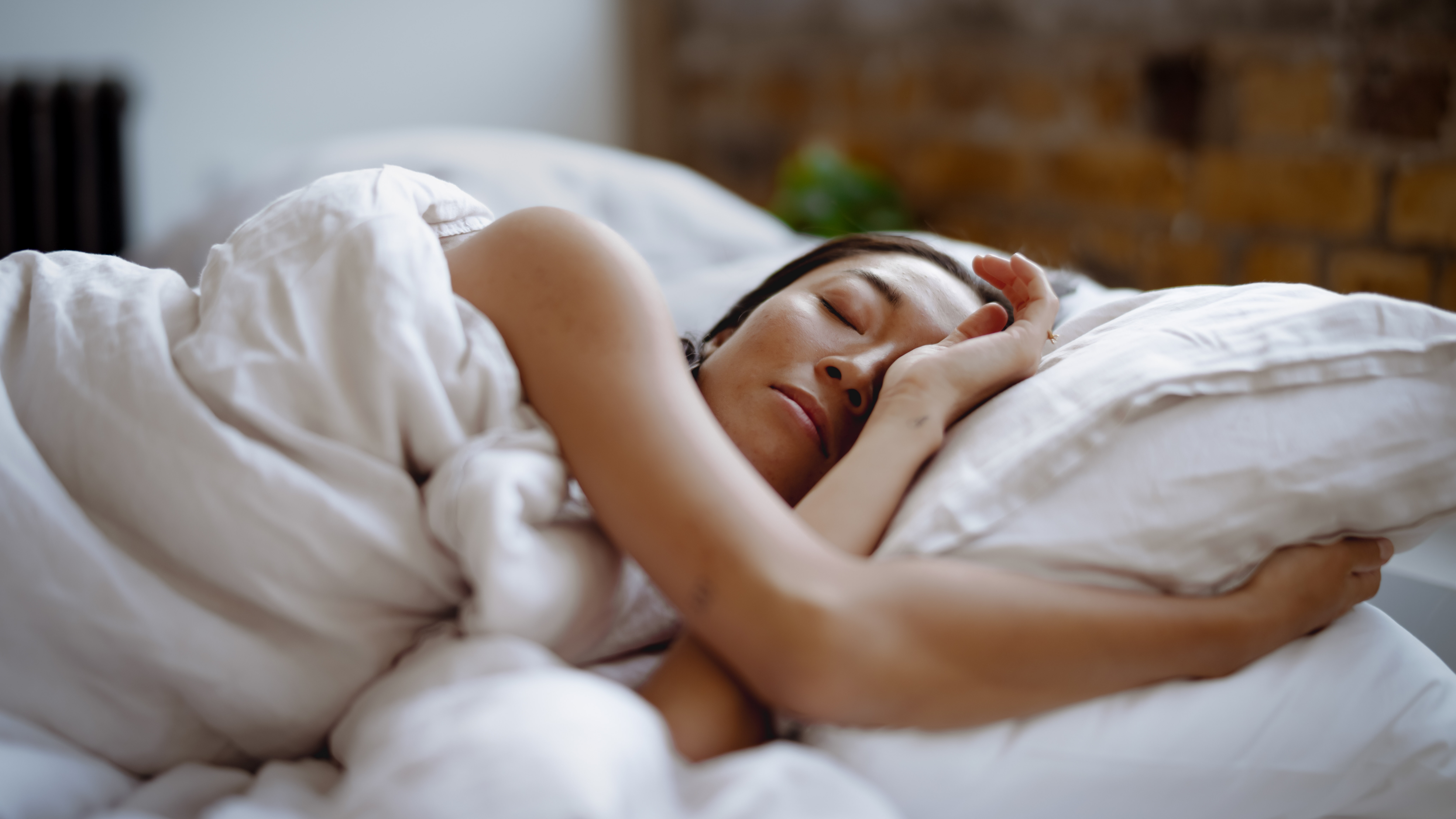

Do you sleep better when it rains? Anecdotally, people say yes, and there have been a few articles flying around that claim to back this up with science. But it all sounded a little tenuous, so we decided to reach out to an expert to see if there's any truth in the suggestion that rainy weather can result in a better night's sleep.
"Australia's #1 Sleep Expert" Olivia Arezzolo has qualifications in psychology, sleep psychology, and nutritional medicine, so she seemed like a good place to start. While not all the claims hold true, Olivia says there are a couple of scientific reasons why we're more likely to sleep easier in wet weather.
The first is to do with pink noise. Pink noise is similar to white noise, but deeper, with reduced higher frequencies. You'll probably have heard of people using white noise to minimise ambient sounds and night, and for its soothing properties. But pink noise can have slightly different effects.
- There's a new prototype violet LED that won't keep you awake like blue light does
- Naturally early risers are less likely to suffer from depression, study finds
"Rain acts as pink noise – and evidence indicates this frequency can increase slow wave sleep by 8%," explains Olivia. "Considering we only spend 20% of our total sleep time in slow wave sleep, this is a significant jump. This is because it synchronises our brainwaves into slower patterns, more conducive to deep sleep."
The second reason why we might see an improvement in sleep when it rains is that drizzly weather often also means there's less brightness from the sun during the day. This is turn encourages the production of melatonin, the key hormone that leads to sleepiness, explains Olivia. "This helps us feel sleepy and encourages an earlier bedtime. This may be supported by the fact that typically, rain comes in the winter months where daylight is shorter too."
Some of the best wake-up lights have SAD modes that are specifically designed to suppress or encourage melatonin production in line with their sunset and sunrise cycles.
Need more help getting to sleep?
Sign up to the T3 newsletter for smarter living straight to your inbox
Get all the latest news, reviews, deals and buying guides on gorgeous tech, home and active products from the T3 experts
- First, make sure you invest in one of the best mattresses
- Here are some techniques you can use to fall asleep more quickly
- Still struggling? Try one of the best weighted blankets, which can relieve insomnia
Ruth is a lifestyle journalist specialising in sleep and wellbeing. She has tested more mattresses than her small flat can handle and will talk at length about them to anyone who shows even a passing interest, and has had to implement a one-in-one-out pillow policy for fear of getting smothered in the night. As well as following all the industry trends and advancements in the mattress and bedding world, she regularly speaks to certified experts to delve into the science behind a great night's sleep, and offer you advice to help you get there. She's currently Sleep Editor on Tom's Guide and TechRadar, and prior to that ran the Outdoors and Wellness channels on T3 (now covered by Matt Kollat and Beth Girdler-Maslen respectively).
-
 Google Pixel Watch 3 just got a potentially life-saving update in the US
Google Pixel Watch 3 just got a potentially life-saving update in the USThe latest update brings advanced heart monitoring to American wrists
By Matt Kollat Published
-
 3 overrated shoulder exercises, according to a fitness expert (and what to do instead)
3 overrated shoulder exercises, according to a fitness expert (and what to do instead)Sculpt 3D shoulders whilst minimising injury with these three alternative exercises
By Bryony Firth-Bernard Published
-
 I spent 6 weeks with the FoodMarble Aire 2: here’s what I learned about my gut health
I spent 6 weeks with the FoodMarble Aire 2: here’s what I learned about my gut healthI’ve been testing the clever breath-testing gadget with the companion app over several weeks to find out if it delivers on its promises
By Lee Bell Published
-
 Oil pulling is going viral on TikTok for stopping morning breath – but does it actually work?
Oil pulling is going viral on TikTok for stopping morning breath – but does it actually work?4 hacks that prevent morning breath, according to a sleep expert
By Bethan Girdler-Maslen Published
-
 These limited edition McLaren x Loop earplugs are what you need for Formula 1 season
These limited edition McLaren x Loop earplugs are what you need for Formula 1 seasonMcLaren teams up with Loop on limited edition noise-reducing earplugs
By Bethan Girdler-Maslen Published
-
 5 sleep supplements that help me achieve 8+ hours of rest every night
5 sleep supplements that help me achieve 8+ hours of rest every nightIt took me years to perfect my sleep routine – here are the supplements that helped
By Lizzie Wilmot Published
-
 3 reasons why you wake up at 3am every night – and how to avoid it
3 reasons why you wake up at 3am every night – and how to avoid itAlways waking up in the middle of the night? This could be why…
By Bethan Girdler-Maslen Published
-
 This tiny device will automatically disable your distracting apps before you sleep
This tiny device will automatically disable your distracting apps before you sleepSay hello to Kip...
By Lizzie Wilmot Last updated
-
 Therabody experts give 7 tips for perfecting your sleep routine for World Sleep Day
Therabody experts give 7 tips for perfecting your sleep routine for World Sleep DayFrom breathing exercises to sleep masks, here’s how to prioritise sleep, according to experts
By Bethan Girdler-Maslen Published
-
 Loop Dream review: super soft earplugs to help you snooze soundly, even if you’re a side sleeper
Loop Dream review: super soft earplugs to help you snooze soundly, even if you’re a side sleeperSquishy silicone and uniquely shaped ear tips take Loop’s nighttime earplugs to dreamy heights
By Joanna Ebsworth Published